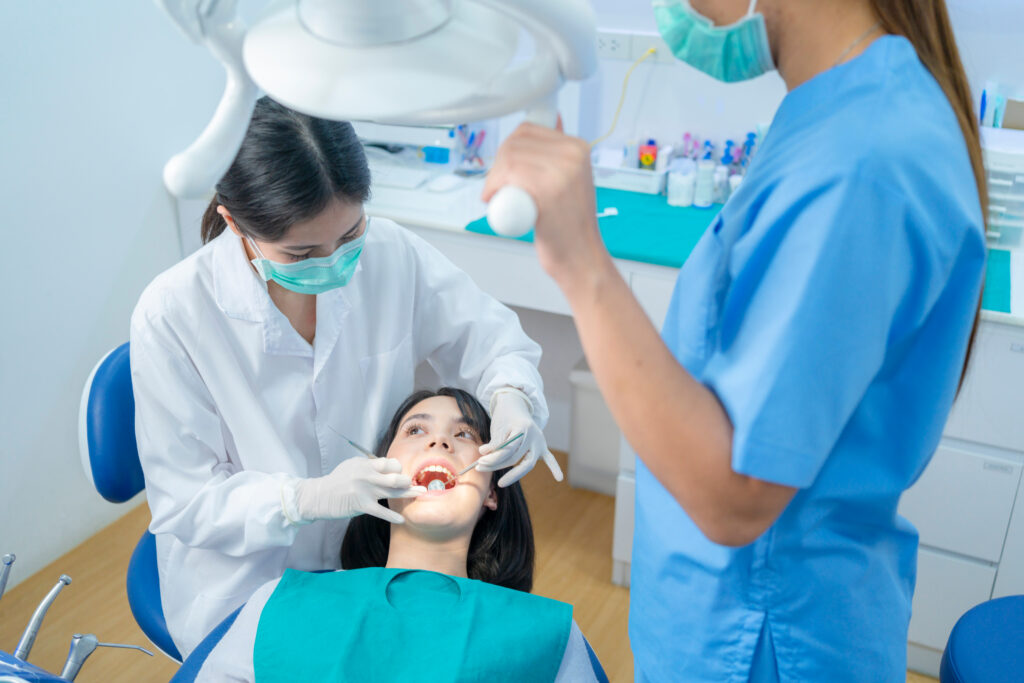Cavities are one of the most common types of dental problems in the world. With the exception of a small handful of people who never have cavities in their lifetime, the majority of people will develop at least one cavity in a tooth during their existence.
Cavities: How to Tell If You Have One?
If you have a cavity in one of your teeth, then the first thing you should do is seek medical attention. Don’t wait until it turns into a larger problem. Most importantly, make an appointment with your nearest dentist and have the cavity corrected. It’s usually not an expensive or difficult procedure to have done. Furthermore, there are several options ranging from extraction through to a root canal.
How do you know if you have a cavity?
The good news is that there are a few ways to check. If you have a cavity, it’s likely that you’ll know it. Here’s how to tell if you have a cavity – and what you should do to take the best care of your teeth possible.
Regular Appointments
Regular appointments with a dental professional are one of the most important things that you can do for your overall health. Even though people don’t see the link between dental health and general health, the health of your teeth happen to have everything to do with how healthy you are.
See your doctor at least once every three to six months for a general check. During this general check, the dentist’s job is to clean and check your teeth for any possible problems or cavities. There’s no need to fear an appointment with your dentist. Dental professionals know what they’re doing, and you’ll be better off after the appointment than before!
Check Your Family History
It’s obvious that you should check your teeth to know if you have cavities – but you should also take a closer look at your family history when it comes to your dental health. Many health conditions are genetic and might cause brittle teeth as one of their symptoms; if any of these conditions have been diagnosed in your family history (or you just know that there’s a history of dental issues), this could make your own condition easier for your dentist to understand and treat.
Don’t Brush Too Much
Experts recommend that people should brush their teeth at least twice per day. Research done into the topic shows that this is the “golden number” and that brushing any more than this could be considered over-brushing instead. Brushing your teeth more than is really necessary to do it only degrades the enamel coating that protects teeth (and it can lead to developing more cavities at a faster rate!).
Sudden Sensitivity
If you notice that your teeth or gums have suddenly become sensitive to changes in temperature, this could be one of the first signs that your teeth enamel is degrading – or that you have a cavity. This is something that people usually notice when they take their first warm cup of coffee in the morning or drink from something cold. The sudden sensitivity could point to an emerging cavity, and it’s only going to make the sensitivity worse over time. The best thing to do here is an immediate appointment with your doctor.
Bleeding Gums
Bleeding gums are one of the scariest dental symptoms – and most people aren’t sure what to think of it. Sometimes bleeding gums could mean that you are subjecting your gums to too much stress and pressure when brushing, but when it’s not your brushing technique, it could be an infection or a cavity. See your doctor any time bleeding gums becomes a repetitive problem.
It’s likely that the problem can be addressed fast, even where it isn’t just a cavity.
Swelling
Swelling of the gums is one of the other signs that you should look for if you suspect that you might have a cavity. Often times, the swelling is only a sign that something else is wrong – and if you don’t see any obvious cavities, see your dentist help you find where the problem lies. Gum swelling usually goes together with pain, and might additionally signal an abscess. Additional treatment with antibiotics might be necessary for addition to treating the cavity.
Regency Family Dentistry Omaha | Best Omaha Dentist near Westroads Mall in Regency
Whether your teeth needs are a:
- complete exam and cleaning,
- full-mouth restoration
- or anything in between
We promise to provide you with exceptional care as we enhance the natural beauty of your smile. Below are just some of the many procedures and dental services we regularly provide to our patients – with a gentle touch, and stunning results. Your smile is our first priority, and we’ll give you something to smile about.
Preventative Dentistry
- Dental Exams
- Dental Cleanings
- Oral Cancer Exam
- Fluoride Treatment
- Sealants
- Dental X-Rays
- Home Care
- Nightguards & Mouthguards
Cosmetic Dentistry
- Dental Implants
- Composite Fillings
- Porcelain Crowns
- FixedPorcelain Bridges
- Porcelain Veneers
- Tooth Whitening
Periodontal Disease
- What is Periodontal (Gum) Disease?
- Diagnosis
- Treatment
- Maintenance
Restorative Dentistry
- Dental Implants
- Inlay Restorations
- Onlay Restorations
- Composite Fillings
- Crowns
- Dentures & Partial Dentures
- Fixed Bridges
- Root Canal Therapy
Oral Surgery
- Wisdom Teeth Extractions



